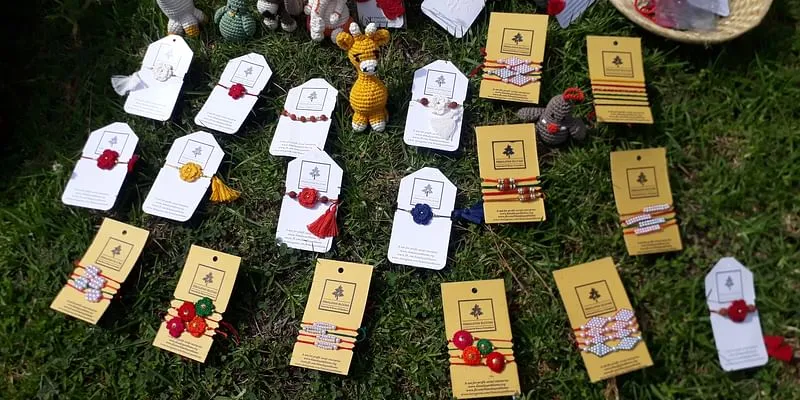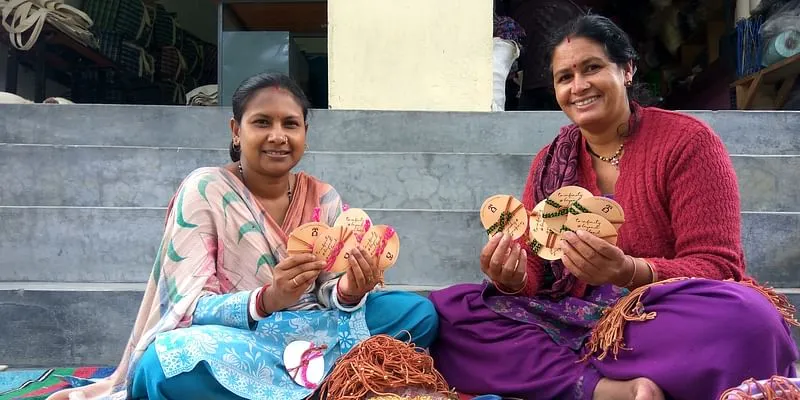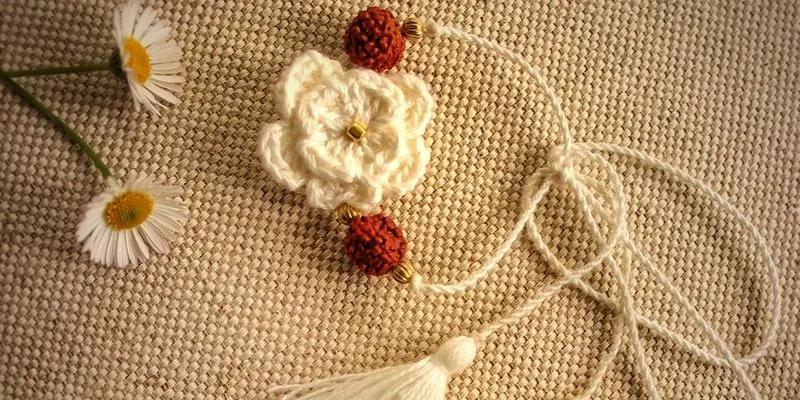This initiative is helping artisans by gifting more than 1 lakh rakhis to soldiers posted at our borders
With Raksha Bandhan around the corner, the ‘Jai Jawan. Jai Artisan’ initiative enables citizens to buy and gift rakhis for the soldiers posted at the country’s borders, while also aiding the artisans who lost their livelihoods.
When the Government of India declared a lockdown on March 25, it led to a severe impact on the economy. Migrant workers, daily wagers, and people living in the rural and remote areas faced the adversities that came along with it.
On the other hand, the artisans, whose livelihoods depended on the sales of their handmade goods, saw a sudden drop in their incomes due to the lack of delivery services, and the subsequent lack of demand.

Habba's initiative to gift Rakhis to soldiers
Understanding the plight of these artisans, Habba, an organic project of Rang De, started an initiative to not only help these workers, but to also acknowledge the valour of our soldiers who guard the borders of our country.
The ‘Jai Jawan. Jai Artisan’ initiative was launched to help the artisans who lost their livelihoods to the harsh impact of the pandemic by encouraging them to make rakhis for the soldiers across the country on the occasion of Raksha Bandhan.
“This initiative is completely not-for-profit and has honest pricing policy,” Ramakrishna NK, Co-founder of Rang De and Habba, tells SocialStory. “We base our work on the principles of Gandhiji’s Satyagraha, and aim to do our best to restore the lost artistic livelihoods.”
Founded in 2008, Rang De is a peer-to-peer micro-lending website that has been helping farmers, artisans, and small businesses by raising social investments with access to low-cost credit through their platform.
The COVID-19 Response
Artisans and weavers across the country are in a dire state due to the shrinking demand for handmade and handwoven goods. Many have now opted for manual labour through programmes such as Mahatma Gandhi National Rural Employment Guarantee Act (MGNREGA).
With the widening gap between the demand and supply of artistic goods in these difficult times, it became a need of the hour to help these artisans restore their livelihoods.
“We received a call from our artisans in Uttarakhand requesting us to help them sell their rakhis in these difficult times, owing to their successful rakhi sale last year,” says Ram. “Even though we turned them down, we got this idea to help these artisans while gifting a heart-warming rakhi and message to the Indian army bases across India.”

Artisans across India will make Rakhis in their own unique style
The ‘Jai Jawan. Jai Artisan’ campaign aims to enable citizens to buy and gift rakhis, along with a message of gratitude, to our soldiers who protect the borders. Each rakhi has a price of Rs 100. The team aims to send about one lakh rakhis to the bases across India.
These rakhis are made by the different artisan communities across India – Pithoragarh and Champawat in Uttarakhand, Dharmapuri in Tamil Nadu, Kutch in Gujarat, Patna in Bihar, and Jamshedpur in Jharkhand.
Since they are made with different artistic backgrounds, naturally, they come in different, vibrant styles – Ringal bamboo rakhis, hand-loomed rakhis, rakhis made from recycled plastic, tri-coloured rakhis, hand-embroidered rakhis, and much more.
Every rakhi tags the place where it comes from, subtly connecting the soldiers and the artisans.
To know more about the rakhis and how you can be a part of it, go to habba.org.
Habba
Habba – a Kannada word meaning festival – is an artisan-focused initiative designed from the ground up to enhance their incomes and create large-scale economic impact.
Started organically as a part of Rang De, it guarantees complete transparency to the customers and a state-of-the-art patent pending Internet of Things (IoT) installation designed for corporate spaces
“The inspiration for Habba came from our interventions to provide working capital to artisans and weavers via Rang De,” says Ram. “We realised that despite getting access to affordable working capital and access to markets, artisans ended up getting a raw deal from the market,” Ram says.

Woven Rakhis
The team at Habba not only aims to revive the jobs of the artisans associated with them, but also change the face of the demand for handmade products in the country.
“This initiative is just the start, and we are in the process of creating a larger campaign to revive livelihoods of artisans by promoting a ‘Handmade-in-India’ movement,” he adds.
Edited by Kanishk Singh








